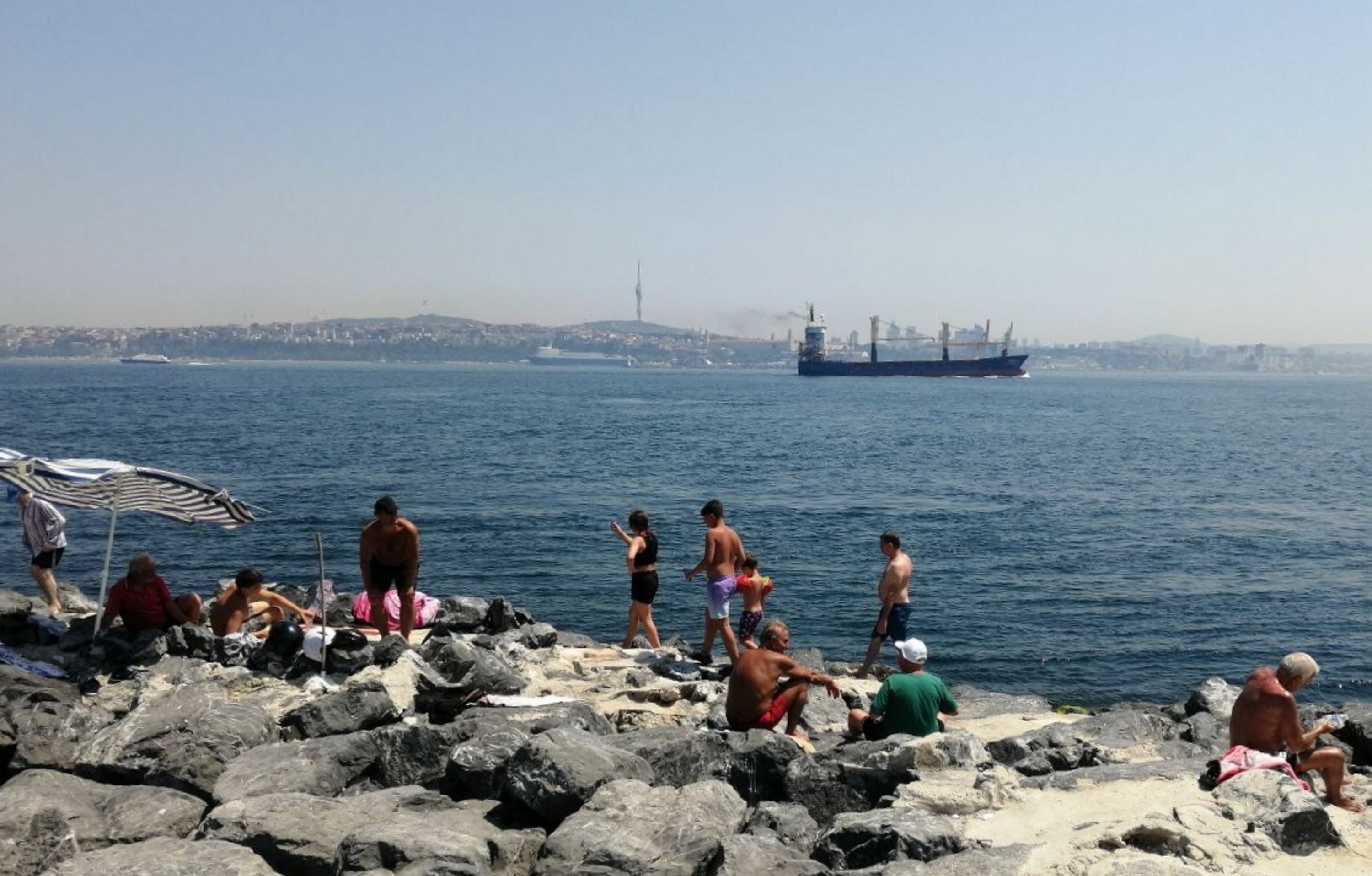© Turkuvaz Haberleşme ve Yayıncılık 2026
The effects of “eyyam-ı-bahur,” also known as the desert heat or African heat, which refers to the hottest days of summer in the last days of July and the start of August, have been particularly intense in southern and western regions of Türkiye since Thursday.
Citizens of the country's largest metropolis, Istanbul, however, have not stayed unimpacted by the scorching heat wave with many seeking relief by a dip in the sea or cooling off in shaded areas at parks.
With the humidity reaching up to 79% in some places according to meteorological measurements, the hot weather made Thursday unbearable for inhabitants.
Many Istanbulites looking for refreshment headed to the cool waters of the Bosporus, Kadıköy's Caddebostan Beach and Üsküdar's Salacak Beach close to the iconic Maiden's Tower. Despite the scorching heat on the beach, some people still walked along the shore, and others waited in queues to visit the Maiden's Tower, Anadolu Agency (AA) reported.
Ayşegül Türkmenli, who came to the beach with her friends, said they organized an event at the beach after the hot weather warnings and said, "Today is very hot, so we said, let's throw ourselves into the sea, but it's not that hot, it's perfect."
Families and friends filled the beach in Caddebostan as the temperature read 39.6 degrees Celsius (103.2 degrees Fahrenheit) late on Thursday afternoon.

In Eminönü, one of the busiest parts of the city's historical peninsula, the crowd had decreased especially during the scorching heat of noon when the sun was at its zenith.
The majority of the tourists visiting Sultanahmet Square were observed sheltering themselves from the sun with umbrellas and hats, while others tried to cool off in the shade of trees.
The "eyyam-ı bahur" heat waves were also felt in the Aegean Region. Thermometer readings showed 39 degrees Celsius in Aydın, and 38 degrees Celsius in Izmir, Denizli and Manisa provinces.
Humidity was particularly noticeable in Aydın, varying from 35% in the city center, 42% in Didim and 44% in the popular tourist hub Kuşadası.
Furthermore, the traditional delicacy of the city, "kar helvası," a type of Turkish dessert, closely translated to as "snow halva" saw an increase in sales during the hot weather.
Kar helvası vendor Ali Rıza Cambaz said their sales were doing very well and mentioned, "Kar helvası is not like ice cream. When you eat ice cream, you get thirsty afterward, but kar helvası doesn't make you thirsty for four hours."
Moreover, beaches in Kuşadası and Didim were also crowded despite the scorching heat, as people sought to cool off.
In western Izmir, the city center experienced a calm atmosphere in the main streets and avenues owing to the heat. Places like Konak Square, Cumhuriyet Square, the waterfront and Karşıyaka, where intense crowds usually build up, had fewer people, especially in the afternoon.
According to the data of the Turkish State Meteorological Service, temperatures on Friday were expected to peak at 42 degrees Celsius in Aydın, 43 degrees Celsius in Manisa, 42 degrees Celsius in Denizli and 36 degrees Celsius in Izmir.
The favorable and mild sea temperatures led to the nation's coastal areas being packed ahead of the weekend. Due to the hot weather in northwestern Tekirdağ, where the temperature was recorded at 35 degrees Celsius and the seawater temperature at 25 degrees Celsius on Friday, those who wanted to cool off concentrated on the beaches of Kumbağ, Marmaraereğlisi and Şarköy.

At the same time, on Friday it was announced that the average surface temperature in the Mediterranean last week reached an all-time high of 28.4 degrees Celsius.
The Turkish Marine Research Foundation (TÜDAV) and European Greens warned this reading was an all-time record.
"The average surface water temperature of the Mediterranean has risen to 28.4 degrees Celsius, a level that has never been seen before. This situation may seriously affect marine life and potentially lead to extinctions of species," TÜDAV's statement read.
Temperatures across Türkiye were said to be well above seasonal norms according to many experts, as the country remained under the prolonged effect of the extremely hot July worldwide.
